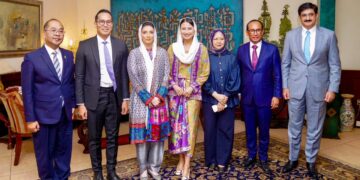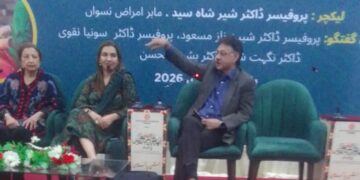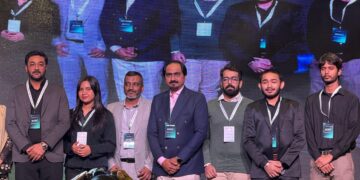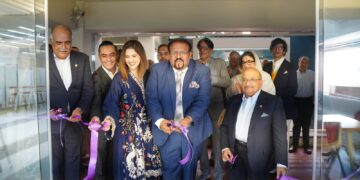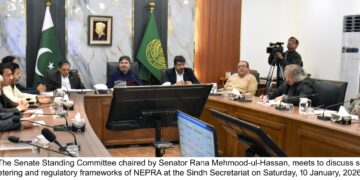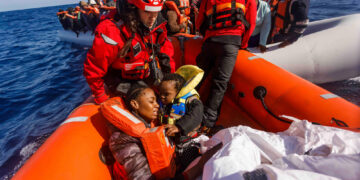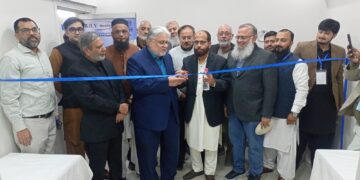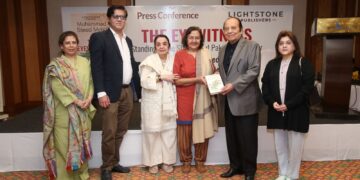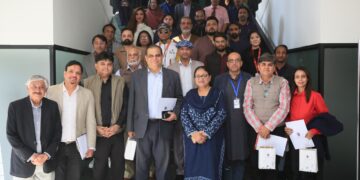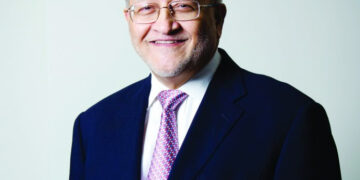KARACHI: Research done by faculty at the Aga Khan University has contributed to the decline of mortality rate of babies and children 35% and 50%, respectively, at its field sites of research. This is not a quick win but years of scientific work and building trust with communities.
“A published paper takes months, or even years to develop. It emerges, however, as the first single datapoint that is collected out in the field, far from the campus, between a vulnerable mother and child and one of our community health workers. We’re now witnessing tangible outcomes of efforts initiated over a few decades ago,” said AKU Chair of Paediatrics Dr Fyezah Jehan.
She was speaking at the University’s fifth annual paediatric research week which brought together over 300 students and healthcare professionals from Pakistan and beyond. Dr Adil Haider, the Dean of the Medical College at AKU, emphasized the institution’s dedication to advancing medical knowledge holistically and driving innovation in maternal, newborn, and child health. “Policy and clinical practice rooted in scientific research is the answer,” he said.
Dr Judd Walson, an American infectious diseases expert recently announced as Chair of International Health at Johns Hopkins University, spent his very first hour on the job speaking at the conference. This was significant because of what he had to say about institutions in Europe and the US working with those in Africa or South Asia.
“People are recognizing the incredible power imbalances in how decision-making is happening in the global health space,” he said, while delivering the keynote speech. The question now is, how can research and decision-making around it be re-centred to institutions based in low- and middle-income settings and “away from that [which is] happening in the global north and being pushed on institutions in the global south.” These conversations are made possible by “strong bi-directional institutional partnerships”, such as the one he said he has been fortunate to have with AKU.
Dr Walson’s encouragement for institutions in the US and Europe to re-orient their approach strongly resonated with the conference theme: “Thriving together, looking forward,” to move beyond a child’s survival. Indeed, chief guest Nadia Jamil, an actor and child protection activist, stressed that, “Children have an inclination to thrive. You give them an opportunity and they will lean towards healing.”
The week-long event featured 21 workshops, covering topics such as statistical computing, metagenomics, neonatal ventilations, paediatric endocrinology, and unravelling clinical genetic test results.







